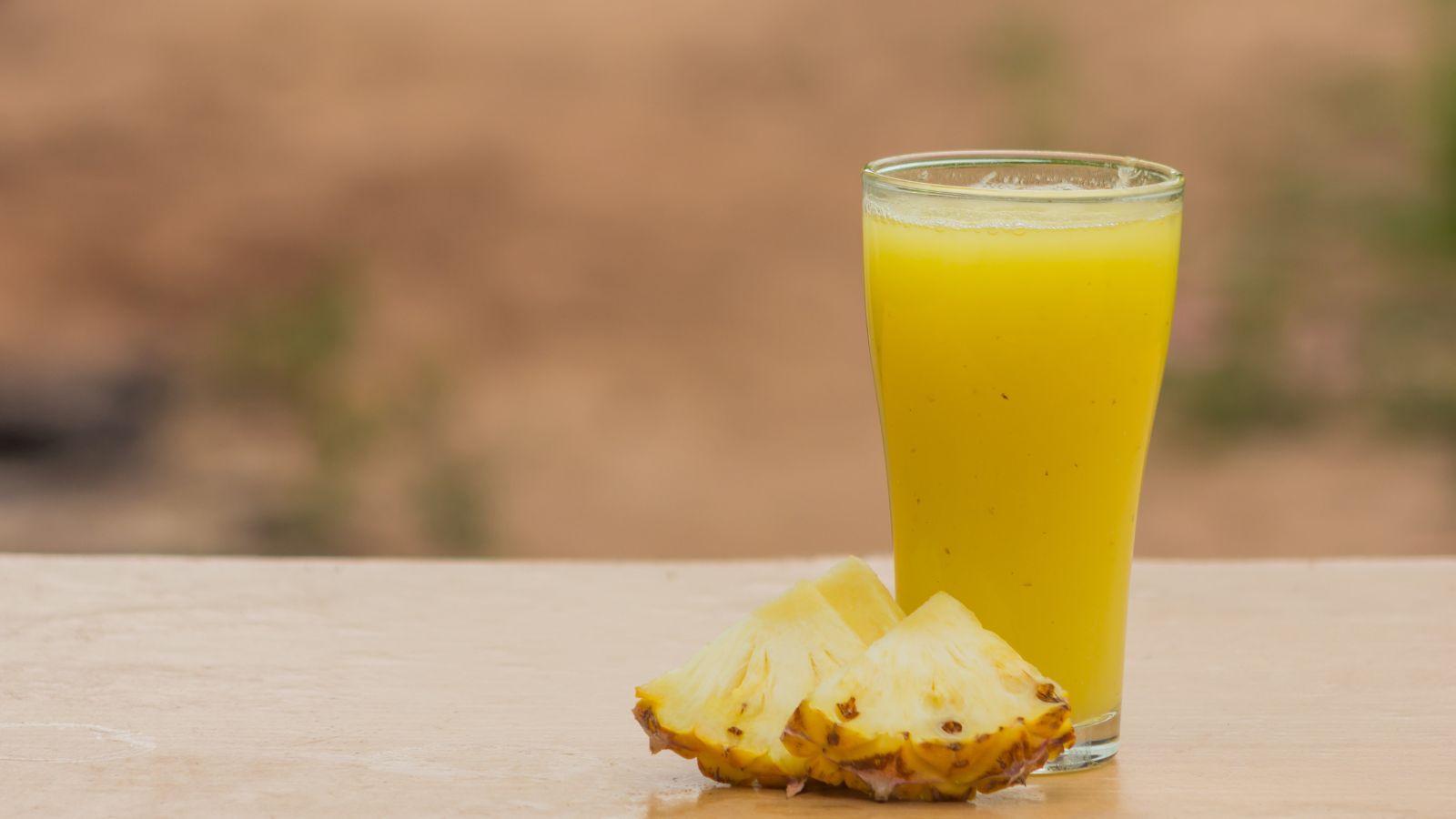
Is Pineapple Safe During Pregnancy? Myths, Truths, and Benefits
Photo Credit: Canva Pro
Is pineapple safe during pregnancy? Yes, if pregnant women eat the right amount, it is safe for them. It won't make you go into labor or harm your baby. Fruits like pineapple are good for you and can be a healthy snack. Just like with any other food, don't eat too much.
When is pineapple safe to eat? When should you be careful? This article tells you what fruits are good and bad for you during pregnancy. Let’s make smart, simple food choices together.
🌴 Clean Fuel Meets Tropical Flavor — Try It Now!
Is It Okay to Eat Pineapple While Pregnant?
Photo Credit: Canva Pro
Debunking the Myth: Can Pineapple Trigger Miscarriage or Early Labor?
There's good news for women who are pregnant and afraid to eat pineapple. Many pregnant women avoid eating pineapple because they think it will cause them miscarriage or early labor. This idea comes from Bromelain, an enzyme that is found in the pineapple fruit's core.
Here’s what science says:
-
Bromelain in fruit flesh is minimal: The amount of Bromelain in the edible part of pineapple is too low to cause uterine contractions or harm the baby.
-
Myth is not supported by research: There’s no proven correlation between eating pineapples and early labor in humans.
-
Rodent studies don’t apply: Some animal tests showed contractions, but no studies prove pineapple’s negative effects on pregnant people.
-
Safe quantity matters: Eating 1–2 servings of pineapple cut into slices per week is considered safe for most pregnant women.
-
Speak to your doctor: If you’re unsure or in a high-risk category, compassionate healthcare professionals can guide you on pregnancy safe foods.
Pineapple’s Nutritional Benefits for Expectant Moms
As part of a healthy, nutrient-dense diet, pregnant women can eat pineapple. Pineapple is a sweet and healthy snack that is full of good nutrients like vitamin C. Fruit is a part of a healthy and nutritious diet, and eating pineapple in moderation can help a pregnancy stay healthy.
Pineapple health benefits include:
-
Rich in vitamin C: Helps with immunity and collagen production for both the mother and the growing baby.
-
Good source of fiber: Promotes healthy digestion and reduces constipation, which is common during pregnancy.
-
Very juicy offering hydration: Helps keep the pregnant mother hydrated, especially during hot months.
-
Contains anti inflammatory nutrient bromelain: Offers mild pain relieving properties and may help reduce swelling.
-
Folate and manganese content: Supports fetal development and bone health.
What Fruit Can I Not Eat While Pregnant?
Photo Credit: Canva Pro
Top Fruits to Limit or Avoid During Pregnancy
While pineapple is safe in normal amounts, some fruits may carry harmful pathogens or cause issues if not handled properly. If you know what to avoid, you can stick to a healthy diet without taking any risks.
-
Unripe papaya: Contains latex that may cause uterine contractions and pose a risk to the baby.
-
Grapes in the third trimester: Some sources recommend limiting grape intake late in pregnancy due to theoretical concerns with Resveratrol and pesticide residues, but evidence is limited and inconclusive.
-
Overeating pineapple: While pineapple is safe during pregnancy, too much may lead to acid reflux or upset stomach.
-
Fruits high in pesticide residue: Unwashed fruits and vegetables can carry harmful bacteria and should always be cleaned.
-
Canned pineapples with added sugar: These are highly processed foods and may affect blood sugar levels.
Safe and Nourishing Fruits for Pregnancy
Pregnant women need fruits that hydrate, provide vitamins, and support fetal development. Eating fruits is an easy way to get all the vitamin and minerals needed for a healthy pregnancy.
-
Bananas: High in vitamin B6 and potassium, great for energy and nausea control.
-
Oranges: Packed with vitamin C and folate, helps boost the immune system.
-
Apples: A healthy snack rich in fiber for digestive health.
-
Berries: Full of antioxidants and vitamin C, great for brain and immune development.
-
Watermelon: Helps prevent dehydration and supports kidney function.
Can Pineapple Soften the Cervix?
Photo Credit: Canva Pro
What Research Says About Pineapple and the Cervix
Some people think that pineapple can soften the cervix and help the labor begin. This idea comes from Bromelain, an enzyme that is found in pineapples and is thought to have an effect on cervical tissue. However, there is no strong evidence showing that eating pineapple has this effect during pregnancy.
Here’s what research shows:
-
No proven human results: Most studies on bromelain’s effects are not done on pregnant women or involve eating pineapple directly.
-
Animal or lab-based studies: Some results are based on concentrated Bromelain or rat studies, not on whole pineapple fruit.
-
Not enough Bromelain in edible parts: The highest bromelain content is in the stem, not in the pineapple fruit most people eat.
-
Focus on nutrition instead: Eating pineapple during pregnancy offers hydration and vitamin C, not labor support.
Should You Use Pineapple to Induce Labor?
Pregnant women sometimes look for natural ways to start labor. Others choose fresh fruit or pineapple juice. So does pineapple make you go into labor? The answer is no.
-
No medical support: There is no scientific evidence supporting the use of pineapple as a method to induce labor.
-
May cause acid reflux: Eating pineapples in large amounts might upset your stomach late in pregnancy.
-
Unlikely to affect cervix: Bromelain isn’t present in strong enough amounts to change anything.
-
Talk to your doctor: Before using any food to induce labor, consult compassionate healthcare professionals.
-
Other risks matter: Eating large portions of fruit might increase sugar levels or GI discomfort.
Which Fruits Are Good for Baby’s Brain During Pregnancy?
Photo Credit: Canva Pro
Nutrients That Support Fetal Brain Development
During pregnancy, a healthy, nutrient-dense diet helps the brain grow and develop. Fruits are important for a healthy pregnancy and provide nutrients that boost memory, learning, and brain function.
-
Choline: Supports memory development – found in eggs and avocados.
-
DHA (Omega-3): Builds brain cells – found in fatty fish and walnuts.
-
Folate: Supports neural tube health – found in oranges and berries.
-
Iron: Helps carry oxygen to the brain – found in leafy greens and prunes.
-
Zinc and B12: Improve learning and focus – found in yogurt, beans, and fortified cereals.
Brain-Boosting Fruits to Include in Your Diet
Fruits that are high in healthy fats, vitamins, and antioxidants help the brain development of the baby. These can be eaten alone or added to meals for variety.
-
Blueberries: Packed with antioxidants that protect brain cells.
-
Avocados: Rich in folate and healthy fat that supports the brain.
-
Bananas: Provide B6 and natural sugar for brain energy.
-
Oranges: Excellent source of vitamin c and folate.
-
Kiwi: Offers vitamin E and fiber, which aids absorption.
About FullyHealthy – Your Guide to Dietary Wellness
Who We Are and What We Offer
FullyHealthy is a trusted source for clean and specialty foods. We offer a wide range of products to support a nutritious diet for everyone. You can start your story of success with Fully Healthy by making choices that are better for you.
-
Supports special diets: Paleo, AIP, vegan, gluten-free, and allergen-friendly options.
-
Works with small brands: Promotes companies that share values in transparency and real food.
-
Prioritizes ingredients: No trans fats, added sugar, or junk food.
-
Trust and quality: Offers clean-label snacks for every lifestyle.
-
Accessible shopping: From snacks to pantry staples, all in one place.
Pineapple Products That Fit Your Lifestyle
If you're looking for a sweet and healthy snack, pineapple is a great choice. FullyHealthy offers several pineapple options to enjoy without compromising your goals.
-
Wild Zora Freeze-Dried Pineapple Mango: A clean, no-additive blend.
-
Solely Organic Pineapple Rings: Made with real fruit and no added sugar.
-
Solely Pineapple with Coconut: Combines tropical taste with nutrition.
-
Solely Fruit Jerky: Convenient for on-the-go use.
Final Thoughts
Final thoughts eating Pineapple: Pineapples are safe for pregnant women to eat in small amounts as part of a healthy diet. While pregnancy pineapples may raise concerns, there’s no evidence linking them to blood clots or early labor. To support a successful pregnancy, avoid Pineapples if you know you are allergic to them.
Focus on breakfast smoothie choices, not sugary foods, refined carbohydrates, or excessive caffeine consumption. Always choose anti-inflammatory properties pineapples over raw or undercooked meat. For you and your baby's sake, stay informed.
FAQs
Is pineapple safe during pregnancy and can pregnant women pineapples eat daily?
Yes, pregnant women pineapples can enjoy it safely unless advised due to a known allergy or digestive issues.
Does pineapple have nutritional value during fertility treatments?
Yes, pineapple has nutritional value and may support fertility treatments when paired with a healthy diet.
Can pregnancy pineapples increase risk of blood clots or excessive caffeine consumption?
No, pregnancy pineapples do not cause blood clots or contain caffeine, unlike sugary foods or refined carbohydrates.
Should I avoid pineapples and eat raw or undercooked meat instead?
No, avoid pineapples only if allergic—never eat raw or undercooked meat during pregnancy.
Can I add anti inflammatory properties pineapples to a breakfast smoothie for both you and baby?
Yes, anti inflammatory properties pineapples in a breakfast smoothie support both you and your baby’s health.

Leave a comment